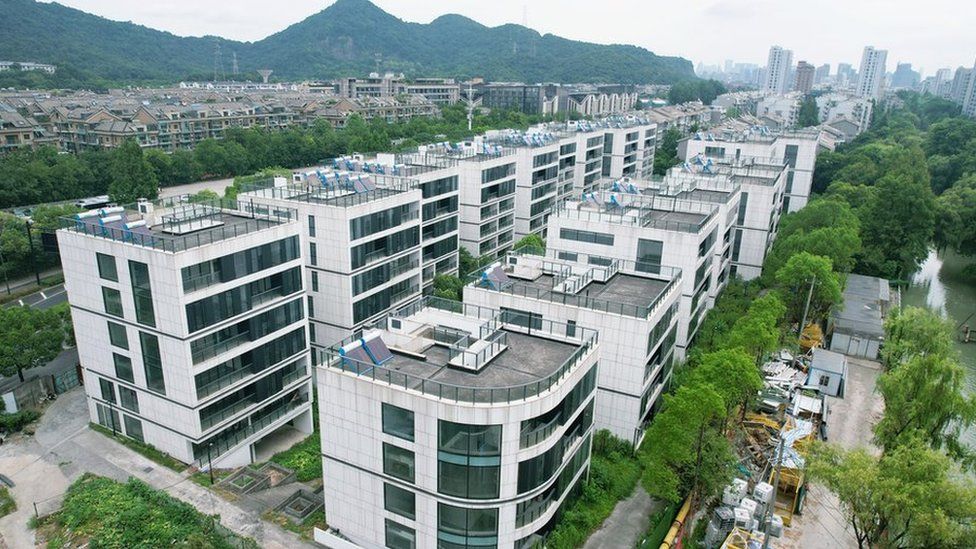
A major Chinese shadow bank has filed for bankruptcy on the grounds it was unable to pay its debts.
On Friday, a Beijing court accepted the application from Zhongzhi Enterprise Group (ZEG), which has lent billions to real estate firms.
Chinese officials launched an investigation into "suspected illegal crimes" against the bank in November.
It followed reports that ZEG had declared it was insolvent.
The struggling firm reportedly told investors in a letter in November that its liabilities - up to $64bn (£50.6bn) - had outstripped its assets, now estimated at about $38bn.
On Friday, a Beijing court published a statement on the social media network WeChat saying that ZEG's "assets are insufficient to pay off all debts, and it clearly lacks the ability to repay in full".
ZEG is a major player in China's shadow banking industry, a term for a system of lenders, brokers and other credit intermediaries who fall outside the realm of traditional regulated banking.
Shadow banking, which is unregulated, is not subject to the same kinds of risk, liquidity and capital restrictions as traditional banks.
Informal lending has always existed in China's economy, but shadow banking really took off in the aftermath of the global financial crisis in 2008, when credit was scarce.
China's shadow banking industry is valued at around $3tn. It often provides a financial lifeline to the country's property sector. The once-booming industry has been hit by a severe credit crunch, with some of the biggest firms now on the brink of financial collapse.
At its peak, ZEG's asset management arm reportedly handled more than a trillion yuan ($139bn; £110bn).
But it was not shielded from the broader property crisis, and it faced further issues in November when authorities said they had taken "criminal coercive measures" against "many suspects".
It is still unclear who they are, and what role they play in the firm. The company's founder, Xie Zhikun, died of a heart attack in 2021.
The latest developments at ZEG have raised concerns of further turmoil in the world's second-largest economy, after the collapse of property developer Evergrande and financial woes at Country Garden.
Embattled property developers currently owe Chinese banks money worth as much as 30% of the banks' assets.
China's property sector makes up a third of its economic output. That includes houses, rental and brokering services, as well as construction materials and industries producing goods that go into apartments.










